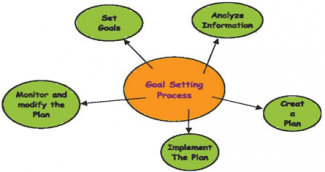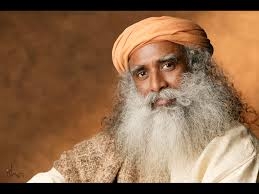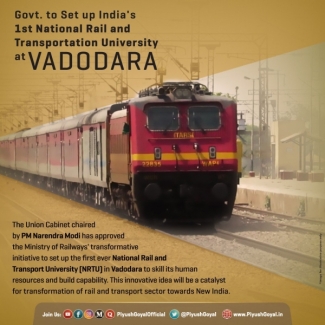All those who are reading this article are intellectuals. There is no doubt about that in my mind. And majority of the intellectuals have the habit of questioning generally everything. I personally don’t find anything wrong in that. One must have a mind that reasons out logically and then decide the next course of action.
But you will also agree with me that given the same conditions, the same scenario and the same parameters, different people may reach different conclusions and different course of actions. People reaching different conclusions will give different logical reasons about the outcome of their final outcome. This happens due to our pre-conditioning of mind. We look at the situation through some band pass filters or band stop filters or even coloured filters and from different angles. These mental filters and angles are the outcome of the conditioning of our mind.
So if my team leader takes a decision, is it necessary that I must question him/her? Every time I question my team leader, he/she will have to explain me the logic of his/her decision. I assume that I am a person with totally an open mind. Though it is easier said than done. So I do listen to the team leader and even cross question him/her at times in between the explanation and satisfy myself and then go along with the decision of the team leader. It looks perfectly OK.
It may also happen that I am not fully convinced with the logic of my team leader but I have to tow his/her line as s/he is the leader. So outwardly, I am with my leader but deep inside me there is a feeling of neglect and indifference and that will lead to lack of trust in my leader by me. Now, is this a good thing for the team or the organization? The obvious answer is a big NO. The team leader may have to spend a lot of time, energy and effort to convince me and may be a few more in the organization regarding the final decision in the name of democracy.
If this happens once a while, it is OK but if it happens as a routine matter for every decision, then it is going to be detrimental for the team or the organization. Such leader may lose the enthusiasm even to lead such a team that keeps questioning each and every step of his/her. Even if the leader continues to maintain the energy and enthusiasm to lead, s/he will be wasting a lot of time in getting everybody along.
So once we know that someone has been nominated, chosen or elected as a leader, why can’t we demonstrate our unflinching support to his/her decisions. Repose our full faith in him/her. Let him/her run instead of walking or even crawling. Give him/her the confidence that full team is with him/her. All the team members should value his/her leadership. Such leaders are able to take great decisions and they take their organizations to heights that are unheard of. We must understand that by virtue of the leadership position, s/he has a broader view of the prevailing scenario and therefore better equipped to take informed decisions. Yes, you have the full right to acquaint your leader with the ground realities also and then leave the final decision to him/her and then no questioning after that.
Look at the condition of Narendra Modi, the PM of India. He has to face stiff opposition not only from opposition parties but also from his own BJP stalwarts like Sh Yashwant Sinha, Sh Shatrughan Sinha and the great Sh Arun Shourie ji at times. Why can’t such people allow him to work peacefully at least for five years? Evaluate his performance again at the end of five years and then decide whether he deserves to be given another five years or the nation has a better alternative. All such people are working as speed breakers in the progress of the nation. But Mr Modi has to manage with all this in the name of democracy. He has to keep moving despite all such road blocks.
When we have given the example of politics, let us also look at the main opposition party of India, the grand old Congress Party. The leader in this party enjoys all the freedom. His/her hands are not tied at all. Nobody questions his/her performance or decisions irrespective of whether the party does well or not in election or on any issue. The stalwarts are there in this party too. In fact, a large number of them are much more experienced that the leader but all of them just keep mum and give the leader their unquestionable support. Probably this is another extreme and that has led to the down fall of this party during last few years.
So it amounts to that healthy criticism devoid of any personal whims and fancies and likings is good for any organization and should be appreciated. Saint Kabir had said, ”निंदक नियरे राखिए, ऑंगन कुटी छवाय, बिन पानी, साबुन बिना, निर्मल करेसुभाय।“ that means “Keep your critic close to you; give him shelter in your courtyard. Without soap and water he cleanses your character.” What a beautiful thought!
So through a critic, you get to know your faults, and you will have a chance to correct them. We must listen to the criticism without any annoyance, because the critic is not your enemy. He is helping you to clean the rubbish from your own life. But let this be very clear that such criticism should be in private and not in public. So when you criticise your leader in private and make him realise his mistake, you demonstrate your faith, trust and loyalty for your leader and your intentions are to help him and not to score any brownie points against him.
Genuine public criticism of a leader by his opponents can be understood but so called genuine criticism by your own followers is not understood. However, if you are totally disillusioned with your leader and feel that s/he has gone totally crazy and his/her actions are against the organization and against its basic tenets and is going to do irreparable damage to your organization, in that case you may decide to either leave the organization or ask for changing the leadership. But before you take this drastic step, consult a few critics of yours also and do a bit of self-introspection too.
The performance of a leader goes up manifold when his followers support him whole heartedly. The overall morale of the organization goes up and they are able to face any challenges as a team. This brings harmony and cordial relationships within the organization and creates a healthy environment. Undue criticism works like different people pulling the cart in different directions and making it stagnant.



















